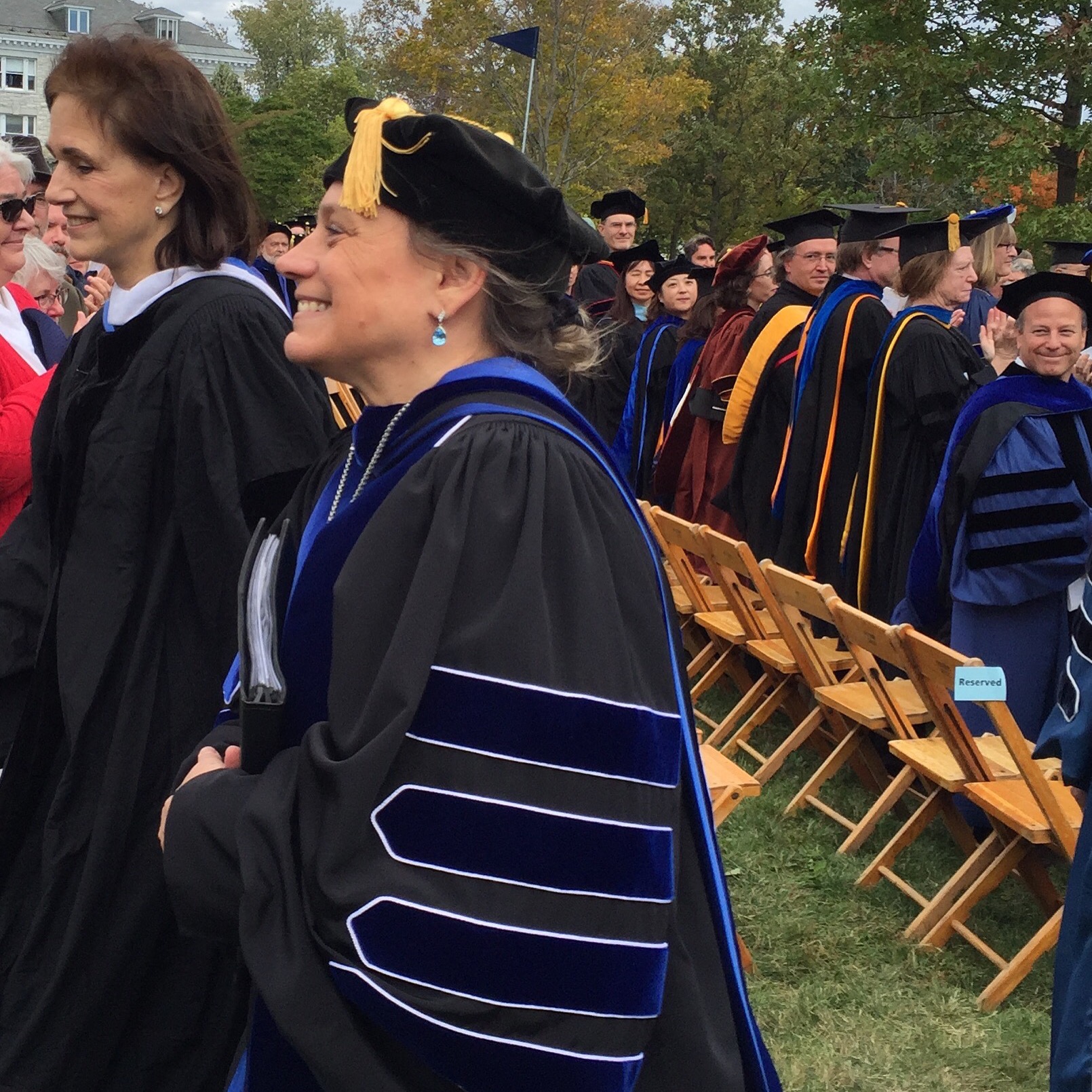 This year at Middlebury College, on several Fridays every semester, you can go have lunch and listen to a conversation where one person, an alum, a faculty member or a student, speaks about what he or she cares about and why. This event is sponsored by the Center for Social Entrepreneurship. Apparently, this kind of thing happens also at Yale and Stanford and other colleges and universities.
Last November, I attended one of these Reflection Fridays, as they are called, to hear Laurie Patton, the new president of Middlebury College. I have been thinking about her responses ever since because her voice, her presence and her stories completely captured my imagination.
This year at Middlebury College, on several Fridays every semester, you can go have lunch and listen to a conversation where one person, an alum, a faculty member or a student, speaks about what he or she cares about and why. This event is sponsored by the Center for Social Entrepreneurship. Apparently, this kind of thing happens also at Yale and Stanford and other colleges and universities.
Last November, I attended one of these Reflection Fridays, as they are called, to hear Laurie Patton, the new president of Middlebury College. I have been thinking about her responses ever since because her voice, her presence and her stories completely captured my imagination.
Here is what she said.
What matters to me and why.
The way I like to think about that question is: "What is my question?"
What is the one question that I’ll never be able to answer and that I will never get tired of asking.
I’d like to pose that to all of us.
We are all endlessly curious about something and we never get tired of being curious about it.
Every single one of us has that place of endless fascination and curiosity and joy.
It is not: "What is your passion?" though it could be part of that.
It is not, "What do you love the most?"
It is not is your identity. It’s none of those things.
It is what is the question that you keep asking and it always needs to end with a question mark.
For me, it is: “What is the nature of the poet in society?” That is the only thing I care about, actually.

I love this idea so much. Of course, I started thinking about what my question would be right away. I am still not sure why this seems so different than stating what you care about in a declarative sentence, but it is completely different. Having this kind of question as a guide means that you are always a researcher, always looking for deeper meaning, always wondering, always seeking relationships and connections. You are part of a process, an unfolding, a journey.
With students and teachers in schools we often refer to Essential Questions and Enduring Understandings which come from Grant Wiggins and his theories and frameworks for Understanding by Design. This idea of searching for and articulating a Life Question puts us in direct relationship to these big ideas as Grant Wiggins calls them.
Laurie Patton went on to say:
I carry books around with me by Adrienne Rich and others, people who write about the role of the poet in society. I carry them in my bag so I can always go back to them. I learned some tough languages, Sanskrit and Gaelic because I had to understand the poetry of those languages.
At a certain point, I realized that part of this for me is wanting everyone to find their voice. The more I did academic administration and I loved it and people loved the way that I did it, I thought, "Why is this working so well?" And the reason is that what is so joyful about doing administration well is helping people come to voice, helping things that aren’t visible become more visible, and helping people speak whatever that truth is even if it is hard for others to hear.
And building a world, even if it is a small world, where we are better at it every day, even though we are never going to be really good at it because it is so hard, is so important.
Everything that I do is related to helping people come to voice and come to voice in the most poetic way possible. I don’t mean help them write great poetry, though some people can do that. Poetry is about seeing something new and juxtaposing two things together that are not usually together, that is what good metaphor is and there are various cognitive theories about that. What I love about good metaphor is that it allows you to hold difference in tension in a way that maintains relationship.
What I mean by coming to poetic voice… is that it allows for the deepest and newest meaning in our lives to emerge.
I am still working on my question and I will write about that in a future blog post. In the meantime, think about your question. What matters to you and why and how does that take the form of an endlessly fascinating, always leading you on, always nourishing and inspiring, kind of question?
 You can hear Laurie Patton in conversation with John Isham during this Reflection Friday here.
You can hear Laurie Patton in conversation with John Isham during this Reflection Friday here.


